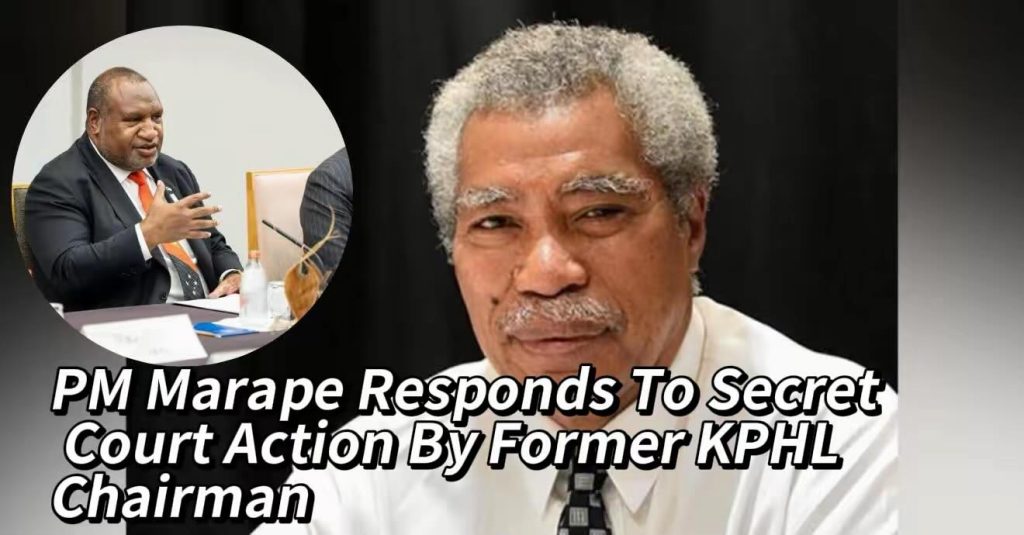On July 22, Papua New Guinea Prime Minister James Marape publicly addressed the secret court proceedings initiated by former Chairman of Kumul Petroleum Holdings Limited (KPHL), Dr. Benedict Yaru, who obtained an ex parte interim court order without the knowledge of the government. The Prime Minister firmly stated that the case was “entirely pursued in secret, without notifying the State or shareholder representatives,” and assured the public that the State will respond decisively in accordance with the law.
“This case was secretly filed in court and resulted in a one-sided ex parte order, all without our knowledge. We only became aware of it after the fact,” Prime Minister Marape said in a press conference.
He further pledged that the government will respond to the legal action through proper channels upon receiving official court documents, and that the State’s position will be robustly defended based on professional legal advice from the State’s legal counsel.
According to Marape, the restructuring of KPHL’s board was conducted based on legitimate legal advice from the State Solicitor. “We received legal advice confirming that the previous board’s term had expired, resulting in vacancies. As the trustee shareholder, the Prime Minister has the lawful authority to appoint new board members,” he explained.
He emphasized that most of the former directors had already served two full terms — the maximum of eight years allowed by law. Dr. Yaru had served for nine years, and one former director had even exceeded the statutory retirement age of 72.
“The KPHL board is not a personal domain. Leadership must be periodically renewed to bring in fresh perspectives and strengthen oversight of executive management,” Marape asserted.
He also praised the appointment of the new chairman, Gerea Aopi, calling him “a seasoned leader with extensive experience in the oil and gas sector,” who has performed with distinction in both the public and private sectors and possesses a clear strategic vision for Kumul Petroleum’s future.
“He understands the strategic importance of our national energy industry and will provide stable and professional leadership in advancing national interests,” Marape said.
Addressing public concerns about the motive behind the reform, the Prime Minister reaffirmed: “We respect every citizen’s legal right to seek redress through the courts, but we will not be deterred by any distractions. The State’s position is clear, lawful, and focused on promoting transparency and accountability in KPHL’s governance.”
Observers note that KPHL, as a key enterprise managing the nation’s energy resources, plays a critical role not just in operational efficiency but also in safeguarding national strategic autonomy. Amid growing volatility in the global energy landscape and increasing foreign interest in PNG’s resources, the government’s move is seen as a preemptive and corrective measure to ensure that national energy assets remain under robust oversight and a transparent governance framework — avoiding risks of “family-style management” and abuse of extended terms.


